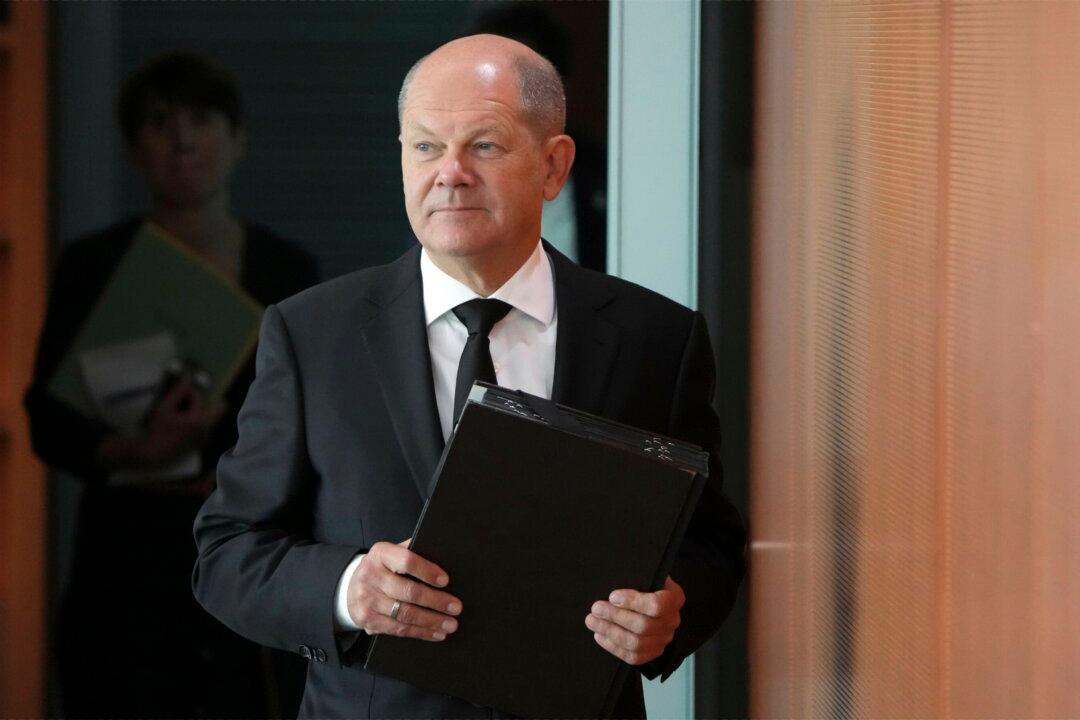The Chinese regime has declared that it will not supply Russia with weapons to aid in its invasion of Ukraine, German Chancellor Olaf Scholz said on March 5.
Scholz made the comments at a press conference at the German government retreat in Meseberg, north of Berlin on Sunday, where he was joined by European Commission President Ursula von der Leyen.




